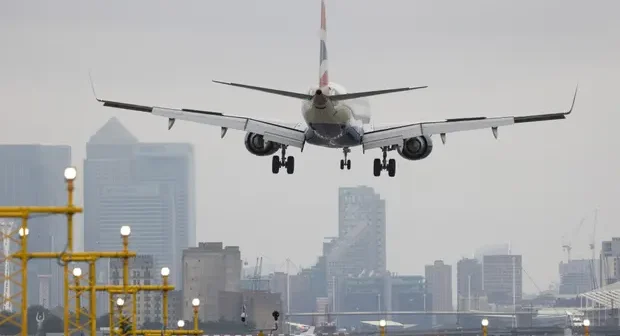The UK’s annual inflation rate unexpectedly remained unchanged in May at 8.7%, adding to the pressure on the Bank of England to increase the cost of borrowing.
Figures from the Office for National Statistics showed annual inflation as measured by the consumer prices index held steady from the same level in April, reversing two months of gains as the soaring cost of living added to pressure on households. City economists had forecast a figure of 8.4%.
In a shock report that underscored the challenge facing the central bank to curb the highest rates of inflation in decades, stabilising energy prices were offset by a sharp rise in the cost of air fares and package holidays as consumers rushed to book overseas summer travel.
Rising prices for second-hand cars, live music events and video games also contributed to inflation remaining high.
The financial markets reacted to the figures by betting the Bank of England would raise interest rates by at least a quarter of a point on Thursday from the current level of 4.5%, with as much as a 40% probability of a tougher half-point increase to 5%.
Core inflation – a measure that excludes volatile food, energy, alcohol and tobacco prices, and which is closely watched by the Bank – rose from 6.8% in April to 7.1% in May, the highest level since 1992.
Figures from the data provider Moneyfacts showed the average interest rate on two-year fixed residential mortgage rose to 6.15% on Wednesday, the highest level since Liz Truss’s disastrous mini-budget last autumn.
The latest inflation reading is likely to embarrass Rishi Sunak’s promise to halve inflation to about 5% before the end of this year. Concerns are growing about the persistence of the cost of living crisis as prices continue to rise at rates that are among the fastest in three decades.
The chancellor, Jeremy Hunt, said he recognised high inflation was hurting families and businesses across the country. “Our plan to halve the rate this year is the best way we can keep costs and interest rates down,” he said.
“We will not hesitate in our resolve to support the Bank of England as it seeks to squeeze inflation out of our economy, while also providing targeted support with the cost of living.”
The shadow chancellor, Rachel Reeves, said the government was failing to tackle inflation despite Sunak’s promise to halve inflation. “This Tory government can’t get a grip of this problem because they are the problem – 13 years of the Tories and their disastrous mini-budget are damaging our economic security and leaving families worse off,” she said.
According to the latest snapshot from the ONS, falling petrol and diesel prices for motorists led to the largest downward contribution to inflation, while pressure from food and drink prices eased after increasing by less in May than the same month a year earlier.
Prices remain high and are still rising fast, adding to pressure on struggling households. Although food and drink inflation slowed from 19% in April, it only dropped to 18.3%, still among the fastest rates in decades.

